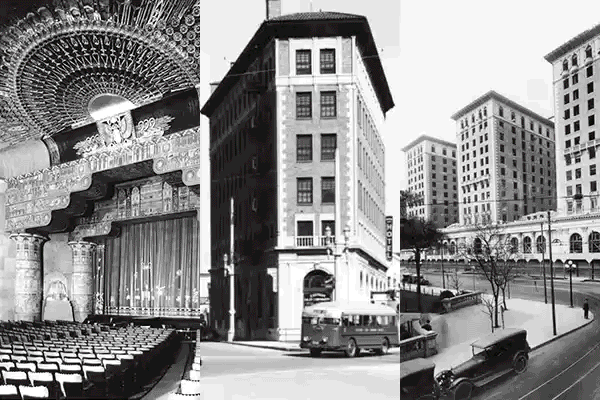‘Broadway Thru a Keyhole’ in UCLA Series
“Hollywood Before the Code,” the UCLA Film Archives’ provocative survey of early talkies made before the severe 1934 revision of the Production Code, continues Thursday in Melnitz Theater at 8 p.m. with “Broadway Thru a Keyhole” (1933).
Based on a story by columnist Walter Winchell, it promises us the lowdown on the denizens of Great White Way but delivers a tedious and sentimental contrivance about an aspiring entertainer (Constance Cummings) torn between the gangster (Paul Kelly) who has given her her big break and her true love, a crooner-bandleader (singer Russ Columbo, wooden as an actor).
Yet even though skilled actor-director Lowell Sherman couldn’t do much with such material, “Broadway Thru a Keyhole” is fascinating, not only for its Pre-Code uninhibitedness but for the presence of such legendary show-business figures as Texas Guinan, the brassy speak-easy hostess who in effect plays herself, and Blossom Seeley, the veteran vaudeville star, who plays Cummings’ earthy chaperon.
While none of the films in this series could hope to match a contemporary film like “Bull Durham” in sexual candor, Seeley’s double entendres are zingers worthy of Mae West. Not so amusing is the crude and derisive stereotyping of a gay interior decorator and Seeley’s ultra-racist line about her hotel key.
The second feature is “I Cover the Waterfront” (1933), directed by James Cruze and starring Claudette Colbert and Ben Lyon.
Saturday’s Pre-Code offerings commence at 6 p.m. with Mervyn LeRoy’s undeservedly obscure “Two Seconds” (1932), which teamed him with his “Little Caesar” star Edward G. Robinson for the third time.
“Two Seconds” takes its title from the purported period of time in which a convict’s life flashes before his eyes as he’s being electrocuted. Adapted by Harvey Thew from Elliott Lester’s play, the film is fresh and vital, an incredibly dynamic evocation of Manhattan blue-collar life in which skyscraper riveter Robinson, an ambitious man with a respect for learning, is snagged by hard-as-nails taxi dancer Vivienne Osborne.
Above all, “Two Seconds” is a reminder, in one of his less familiar (but most demanding) roles, of just how great a screen presence Edward G. Robinson could be.
“Two Seconds” is followed at 8 p.m. by LeRoy’s timelessly enjoyable “Gold Diggers of 1933” and by “Wonder Bar” (1934), starring Al Jolson and featuring Busby Berkeley’s mind-boggling “Goin’ to Heaven on a Mule,” one of the most tasteless examples of Hollywood stereotyping of blacks. Information: (213) 206-FILM, 206-8013.
More to Read
Only good movies
Get the Indie Focus newsletter, Mark Olsen's weekly guide to the world of cinema.
You may occasionally receive promotional content from the Los Angeles Times.










